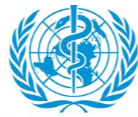10 min read
0
White Fibrous Clots and VAERS Data Manipulation: A Call for Urgent Investigation
Introduction The safety of mRNA COVID-19 vaccines (Pfizer and Moderna) has been a cornerstone of public health messaging, yet alternative voices on platforms like Substack and X challenge this narrative with disturbing reports. Laura Kasner’s March 2025 Substack post, “A Horrifying Breakthrough in the WHITE FIBROUS CLOT Saga,” details claims by a scientific team led by retired organic chemist Greg Harrison, who analyzed white fibrous clots found by embalmer Richard Hirschman. These clots, reportedly distinct from typical blood clots, contain high phosphorus, sulfur, and tin, with low iron, magnesium, and potassium, and are hypothesized to stem from mRNA vaccine lipid nanoparticles. Concurrently, WelcomeTheEagle’s Substack, run by a self-described VAERS auditor, alleges systemic manipulation of VAERS data, including the deletion, alteration, and undercoding of adverse event reports, further obscuring…










